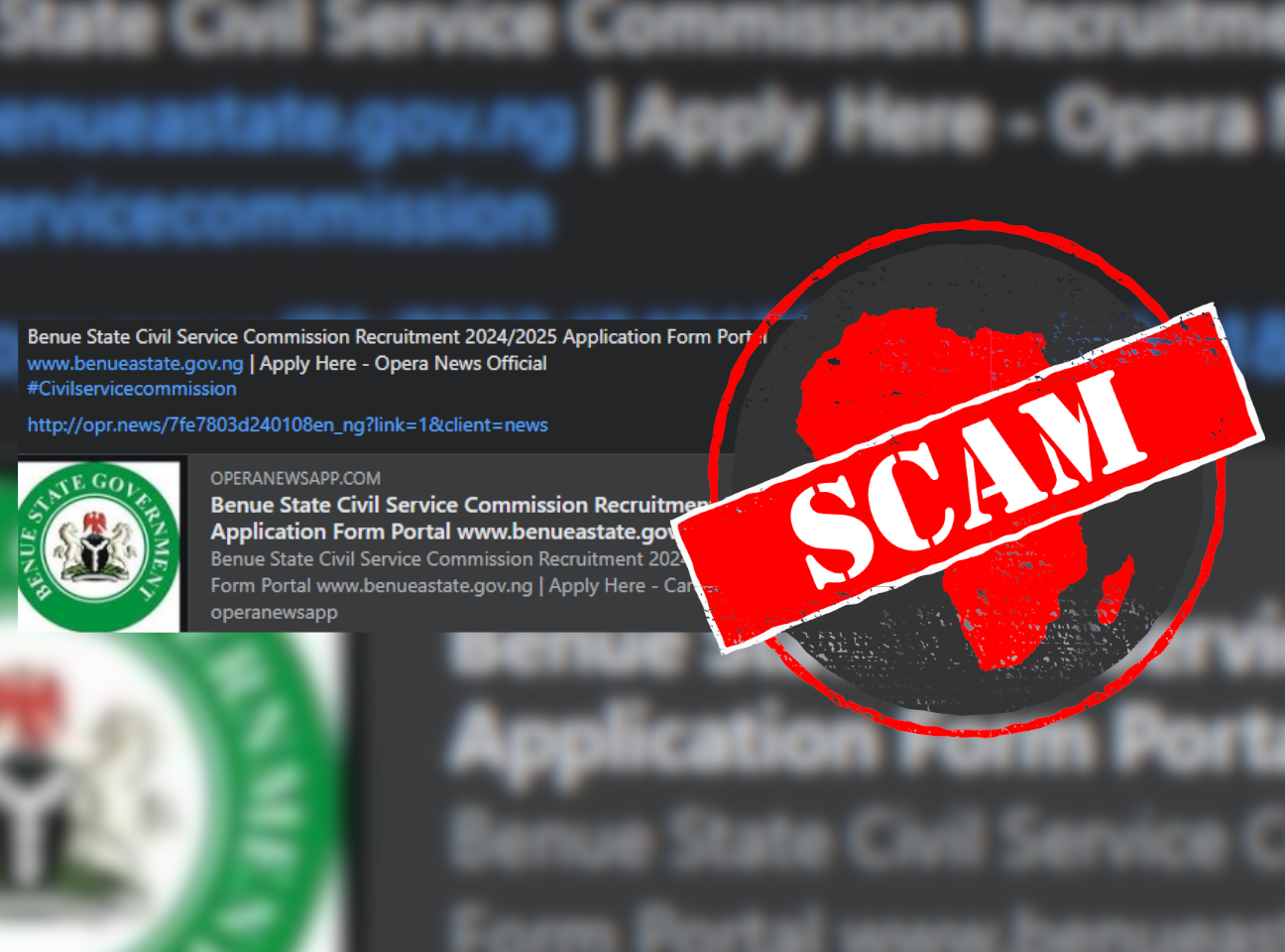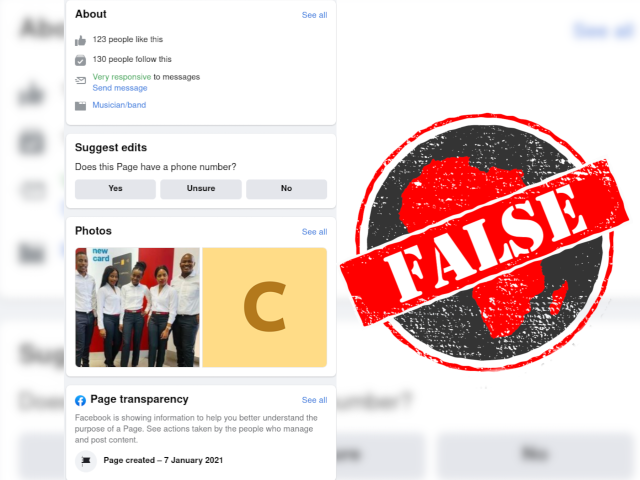IN SHORT: The Benue state government in Nigeria has warned the public about a fake job application portal. It says it is a ploy to defraud the unsuspecting public.
A Facebook post from January 2024 claims that the north-central Nigerian state of Benue is recruiting for its civil service.
The post includes a link to what it says is a portal where those interested can apply. It’s headlined: “Benue State CSC Recruitment 2024/2025 Application Portal.”
The same claim has been published elsewhere, including on other Facebook pages and blogs here, here, here, here and here.
Nigerian states, companies, institutions and agencies have been victims of fake recruitment ads. These fake advertisements usually demand money from innocent people.
But has the Benue State Civil Service Commission announced that it is recruiting? We checked.

Job ad is fake, says state government
The web link attached to the job advertisement did not lead to any official site related to Benue state.
The state government's official website was under maintenance at the time of publication.
A spokesperson for the state government denied any hiring. “The government of Benue State has not yet opened any portal for recruitment into the Benue State Civil Service,” said Tersoo Kula, the chief press secretary to the state’s governor.
His 11 January statement was titled: “Benue state government has not started recruitment into the civil service.”
“The purported website tagged ‘Benue State Civil Service Commission Recruitment 2024/2025 Application Form Portal www.benueastate.gov.ng’ is fake and is a ploy by some fraudulent persons to deceive the unsuspecting Benue public,” Kula said.
“The only recruitment ongoing in the state at the moment is the one advertised by the management of Benue State University Teaching Hospital, Makurdi.”
The media also reported on 11 January that the state had put a planned recruitment drive on hold because of job racketeering.
Republish our content for free
For publishers: what to do if your post is rated false
A fact-checker has rated your Facebook or Instagram post as “false”, “altered”, “partly false” or “missing context”. This could have serious consequences. What do you do?
Click on our guide for the steps you should follow.
Publishers guideAfrica Check teams up with Facebook
Africa Check is a partner in Meta's third-party fact-checking programme to help stop the spread of false information on social media.
The content we rate as “false” will be downgraded on Facebook and Instagram. This means fewer people will see it.
You can also help identify false information on Facebook. This guide explains how.




Add new comment